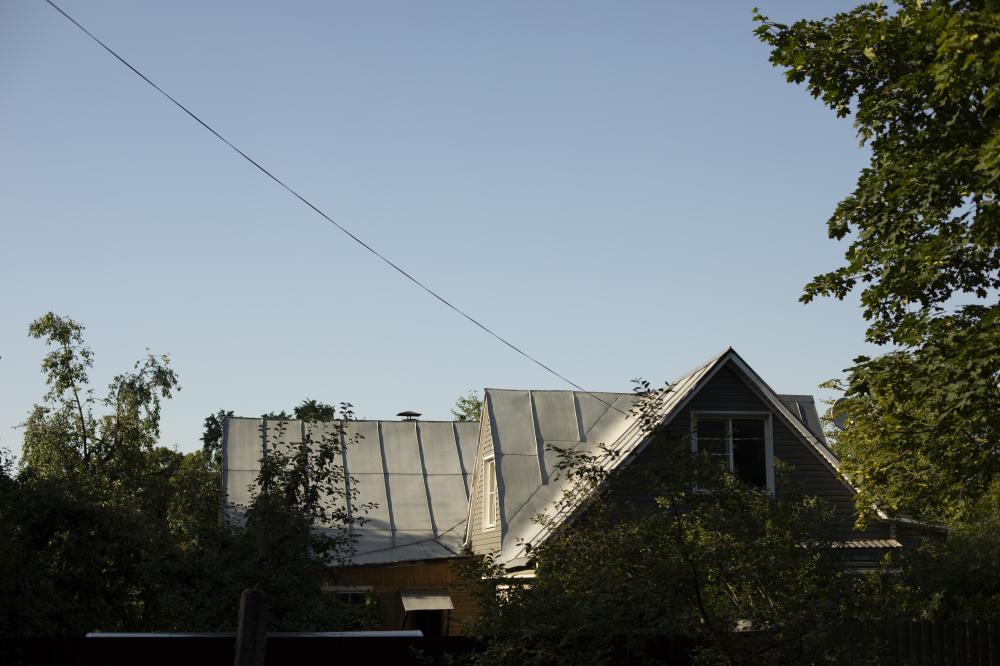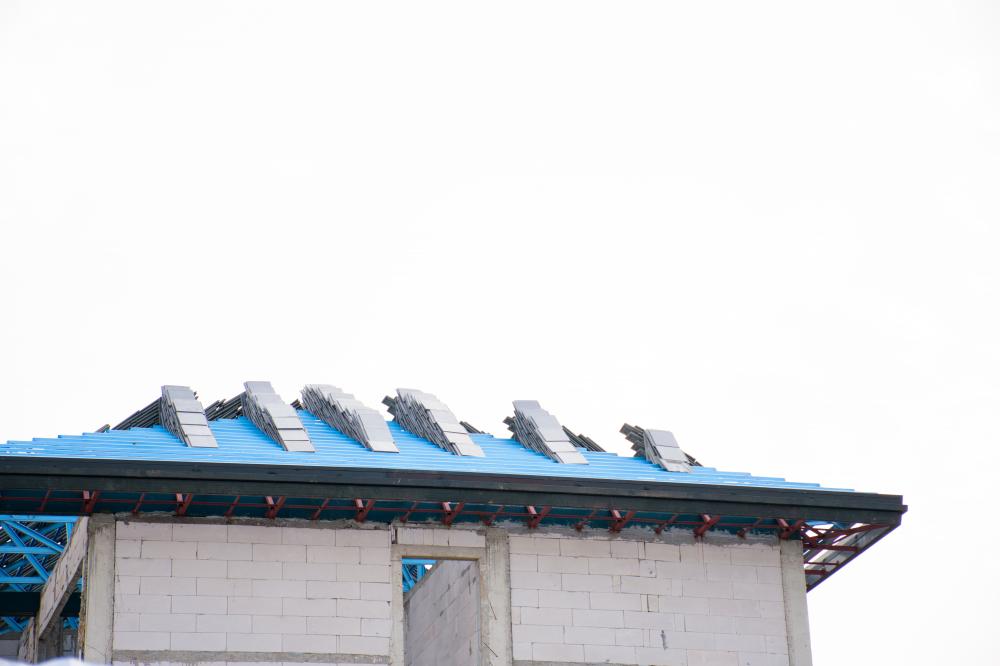
The Importance of Insulation
As we explore the nuances of reflective roof insulation Birmingham, it’s crucial to highlight the fundamental role of insulation in our daily lives. Insulation serves as a barrier, moderating the movement of heat between the inside and outside of a building. This thermal regulation helps maintain a comfortable indoor climate, reducing the need for heating and cooling systems to work excessively.
In Birmingham’s climate, proper insulation is more than just a luxury–it’s a necessity. By minimizing the amount of heat that enters or escapes a building, insulation contributes to significant energy savings. This is especially pertinent given the city’s warm summers and chilly winters, where energy efficiency becomes a priority for homeowners and businesses alike.
Beyond energy savings, a well-insulated home can enhance overall living quality by maintaining consistent indoor temperatures. It also aids in soundproofing, creating a tranquil indoor environment. For those installing reflective roof insulation Birmingham, improving comfort and efficiency are primary objectives.
What is Reflective Roof Insulation?
Reflective roof insulation is a unique solution in the insulation market, designed to reflect heat rather than absorbing it. It typically comprises a reflective surface, often aluminum foil, that is installed in attics or roof spaces. This type of insulation is particularly effective in reducing the radiant heat transfer from the sun, a common issue in regions like Birmingham.
When installed in a roof or attic, reflective insulation creates a barrier that reflects the heat away from the building. This reflection can significantly reduce the cooling load, making it an excellent choice for both residential and commercial structures. This type of insulation is often combined with other insulation materials to enhance overall effectiveness and achieve optimal energy efficiency.
Benefits of Reflective Roof Insulation
Reflective roof insulation Birmingham offers numerous advantages, making it a popular choice for homeowners looking to improve their energy efficiency. One of the primary benefits is the reduction in cooling costs. By reflecting solar heat away from the building, this type of insulation minimizes the amount of heat that penetrates the home, thereby decreasing the need for air conditioning.
Another significant advantage is its ability to extend the life of roofing materials. By preventing excessive heat buildup, reflective insulation helps protect roofing materials from thermal stress, which can prolong the integrity and lifespan of the roof itself. This is an often-overlooked benefit that can save homeowners substantial repair and replacement costs over time.
Additionally, reflective insulation can enhance indoor comfort by maintaining more stable temperatures throughout the home. It can also aid in reducing attic temperatures, which contributes to the overall effectiveness of the entire home’s insulation system. These benefits collectively contribute to a more sustainable living environment.
Moreover, reflective roof insulation is typically lightweight and easy to install, making it a convenient option for many property owners. This ease of installation can lead to reduced labor costs and faster project completion times.
How Reflective Insulation Works
The mechanism behind reflective roof insulation Birmingham is simple yet ingenious. This type of insulation works primarily on the principle of reflecting radiant heat rather than absorbing it. Radiant barriers, as they are also known, are highly reflective materials that redirect heat away from a building’s interior.
When installed under the roof decking in attics or as a standalone insulation layer, these barriers reflect radiant heat back towards the roof, drastically reducing the amount that enters the property. This process is particularly beneficial in warmer climates where solar radiation is a significant concern.
Reflective insulation is most effective when there is a sizable temperature difference between the indoors and outdoors. Its performance and efficiency can be maximized by ensuring proper installation, allowing for an airspace between the insulation and the roof surface. This air gap further aids in reducing heat conduction from the roof to the attic space.
Different Types of Reflective Insulation
Several variations of reflective insulation exist to cater to different needs and applications. The most common type utilizes aluminum foil, either single or double-sided, bonded to paper or plastic substrates. This kind of barrier is versatile and can be used in various parts of a building, including walls and roofs.
Another variation is bubble foil insulation, which consists of one or two layers of foil with a layer of polyethylene bubbles in between. This material is particularly effective, as the air bubbles provide additional thermal resistance. It’s often used in spaces where both reflective and conductive heat transfer need to be minimized.
Some innovative solutions incorporate foam panels with reflective surfaces. These panels provide excellent thermal resistance and can be easily installed over existing insulation for added efficiency. They are particularly useful in large commercial or industrial facilities where maximum energy savings are desired.
The choice of reflective insulation type largely depends on the specific requirements of the building and the climate conditions of the area. Consulting with experts can help in identifying the most suitable option for your needs.
Installation Process and Best Practices
Pre-Installation Assessment
Before embarking on the installation of reflective roof insulation Birmingham, conducting a thorough assessment of the space is vital. This includes inspecting the attic or roof for any existing damage that might need repair to ensure the insulation performs optimally. Understanding the specific requirements of the installation area will aid in selecting the most appropriate reflective insulation type.
Proper Installation Techniques
Proper installation is critical to maximizing the effectiveness of reflective roof insulation. Ensuring an adequate air gap between the radiant barrier and the roof deck is necessary for optimum thermal performance. This airspace allows the reflective surface to effectively minimize heat transfer by reflection, which is key to the insulation’s efficiency.
Post-Installation Considerations
Once the installation is completed, routine checks should be conducted to maintain the insulation’s integrity. Monitoring for any signs of damage or wear can help prolong the lifespan of your reflective insulation system. Regular upkeep will ensure consistent performance and continued energy savings for homeowners.
Common Misconceptions
Despite its benefits, reflective roof insulation Birmingham is often subject to misconceptions that can hinder its adoption. One common belief is that reflective insulation is only suitable for hot climates. While it’s true that radiant barriers excel in reducing cooling loads, they also contribute to overall energy efficiency, making them valuable in various climates.
Another misconception is that reflective insulation alone is sufficient for all insulating needs. While it plays a crucial role, it is often used in conjunction with other insulation types to create a comprehensive solution tailored to the building’s specific needs.
There is also a misunderstanding regarding the installation complexity. Some believe that installing reflective insulation is a simple DIY project, but professional installation is recommended to ensure proper placement and functionality. This professional touch can significantly impact the system’s performance and longevity.
Economic Impact and Savings
The economic benefits of installing reflective roof insulation Birmingham are noteworthy. By reducing the cooling demand during peak summer months, homeowners can experience substantial savings on their energy bills. These savings can be particularly pronounced in larger homes where HVAC systems work harder to maintain a comfortable climate.
Moreover, the initial investment in reflective insulation often pays for itself over time through reduced utility costs. The longevity and durability of these materials mean lower maintenance and replacement costs, adding to the overall financial benefits.
Investing in reflective insulation is also a proactive approach to enhancing a property’s value. Energy-efficient homes are increasingly sought after on the housing market, making insulation upgrades a wise investment for future resale opportunities. Homeowners can enjoy improved living conditions while also boosting the long-term value of their property.
Environmental Benefits
The environmental impact of reflective roof insulation Birmingham is equally compelling. By reducing energy consumption, reflective insulation contributes to lowering the carbon footprint of a home. It aligns with global efforts to reduce energy demand and promote sustainability.
Reducing the reliance on air conditioning systems results in decreased greenhouse gas emissions, which is a significant step towards mitigating climate change. Reflective insulation supports eco-friendly building practices by promoting energy efficiency and resource conservation.
Furthermore, many reflective insulation materials are made from recyclable components, further enhancing their environmental credentials. Homeowners prioritizing sustainability can feel confident in choosing reflective insulation as part of their eco-conscious home improvement strategy.
Case Study: Geo-Insulation of Alabama
Geo-Insulation of Alabama exemplifies the effective application of reflective roof insulation Birmingham, illustrating the substantial benefits it can offer. As a leading provider, the company has enabled numerous residents to optimize their home’s energy efficiency and comfort levels.
Drawing from years of professional experience, Geo-Insulation of Alabama employs skilled techniques to ensure that installations are executed to the highest standards. Their team’s dedication to customer satisfaction is underscored by numerous positive testimonials, demonstrating the real-world impact of their work.
With an emphasis on personalized service, Geo-Insulation of Alabama delivers tailored insulation solutions that meet diverse client needs. Their commitment to quality and sustainability makes them a trusted partner in Birmingham’s drive towards energy-efficient living.

How does reflective roof insulation benefit my home in Birmingham?
Reflective roof insulation can offer significant benefits for homes in Birmingham due to the local climate’s unique demands. Birmingham tends to experience warm summers and chilly winters, making energy efficiency a priority for homeowners. By reflecting solar heat away from your home, reflective insulation reduces the cooling load during the summer, helping you save on air conditioning costs. In the winter, it helps maintain warmth, contributing to consistent indoor temperatures year-round. From my experience at Geo-Insulation of Alabama, our clients often report not only significant energy savings but also greater comfort at home. When considering insulation, think about how much your energy bills fluctuate between seasons. Would a more stable indoor climate improve your daily life?
What are the common misconceptions about reflective roof insulation?
A common misconception is that reflective insulation is only beneficial in hot climates. While it excels at reducing cooling loads, it actually enhances energy efficiency in diverse climates like Birmingham’s. Another is the belief that reflective insulation alone suffices for all insulation needs. In reality, it’s most effective when used with other types of insulation to address all pathways of heat transfer. I’ve seen customers surprised by how much more comfortable their homes are after using a combination of insulation types. If you’re planning an insulation project, have you considered a holistic approach that addresses all your home’s insulation requirements?
Can I install reflective roof insulation myself?
While it might seem like a straightforward task, installing reflective roof insulation requires precision to ensure maximum effectiveness. The process involves ensuring an adequate air gap and proper placement, which is why we at Geo-Insulation of Alabama recommend professional installation. Our team ensures that the insulation is correctly installed, maximizing its benefits and longevity. We provide peace of mind with our lifetime warranty against settling of loose-fill insulation. It’s worth considering whether the potential savings from DIY justify the risk of incorrect installation, particularly if professional services ensure higher efficiency and comfort.
What types of reflective insulation are available?
There are several types of reflective insulation, each catering to different needs. The most common is aluminum foil-based, either single or double-sided, which is versatile for walls and roofs. We also use bubble foil insulation, effective in minimizing both reflective and conductive heat transfer. This is particularly useful in areas that need more thermal resistance. In some cases, foam panels with reflective surfaces are installed for added efficiency, particularly in commercial settings. Each type has its advantages, and it’s essential to choose based on your specific requirements. Have you evaluated your home’s insulation needs to determine which type might be most beneficial?
How does reflective insulation contribute to energy savings?
Reflective insulation reduces the amount of radiant heat entering your home, leading to less reliance on air conditioning and heating systems. This is especially valuable in Birmingham, where energy demand fluctuates between seasons. At Geo-Insulation of Alabama, we’ve seen customers cut down their energy bills significantly thanks to well-installed reflective insulation. By decreasing the workload on HVAC systems, these savings can multiply over time, often justifying the initial investment. Have you considered the long-term savings potential versus the upfront cost when planning your insulation upgrade?
What are the economic and environmental impacts of using reflective insulation?
Economically, reflective insulation can reduce energy bills, prolong the lifespan of roofing materials, and increase a property’s market value. Environmentally, it contributes to reduced energy consumption, aligning with sustainable practices to lower carbon footprints. At Geo-Insulation of Alabama, we often highlight these dual benefits to clients. The choice to invest in reflective insulation is not just a step towards financial savings but also an eco-conscious decision. In considering home improvements, how important are environmental impacts in your decision-making process?
How does Geo-Insulation of Alabama ensure quality insulation installation?
Our team at Geo-Insulation of Alabama prioritizes a thorough pre-installation assessment to tailor our approach to each project’s unique needs. We ensure that our installers are trained to the highest standards, focusing on precision and efficiency. With years of experience, our methods guarantee optimized insulation performance, validated by numerous positive testimonials from our clients. Additionally, our lifetime warranty offers further assurance of quality and customer satisfaction. When considering professional services, how much value do you place on a company’s track record and customer feedback?
Resources
- U.S. Department of Energy – Office of Energy Efficiency & Renewable Energy – Explore resources on energy efficiency and renewable energy to learn more about the benefits of reflective insulation.
- National Fenestration Rating Council – The NFRC provides information on energy-efficient windows and related products, including how reflective insulation can complement overall energy savings.
- U.S. Environmental Protection Agency – Visit the EPA’s website to discover environmental benefits and sustainable practices related to energy-efficient home insulation solutions.
- ENERGY STAR – Learn about the ENERGY STAR program and find resources on energy-efficient products, including insulation options for homes and businesses.
- North American Insulation Manufacturers Association – The NAIMA offers insights into different types of insulation and their respective benefits, including reflective insulation for improving energy efficiency.

